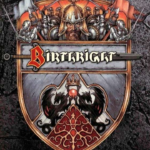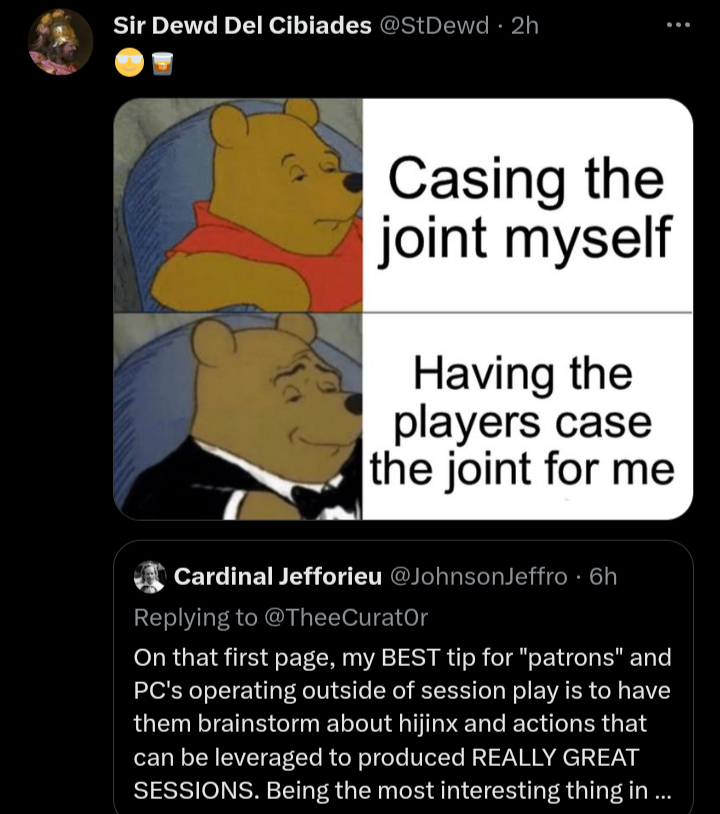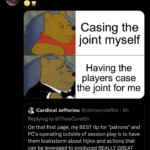A lot of tabletop gamers totally spaz out when you tell them there is a better way to olay the game they’ve been playing for 40 years. Even guys with ten feet of shelf space dedicated to gaming advice or coil and a horror when they’re giving gaming advice. Maybe it is because 99% of that shelf space is devoted to books validating the way they play that challenging them to play better, evokes such a savagely defensive stance. A bit weird, if you ask me.
On the better hand, there are plenty of good actors out there too. One of them, TomAnon, asks a great question:
 I would like to play AD&D 2e Birthright Campaign Setting wherein each session encompasses a 3 month in game time domain turn where you play out highlights of the domain play.
I would like to play AD&D 2e Birthright Campaign Setting wherein each session encompasses a 3 month in game time domain turn where you play out highlights of the domain play.
A similar concept to the RPG Pendragon (where each session is 1 year). I really like the idea of generational play, seeing the player characters descendants and the original characters lasting impact on the campaign world.
Said honest broker asked for my thoughts on Respecting the concept of 1:1 time but finding a way to use it to support generational play and still use AD&D2e Birthright RAW. Having never even read Birthright, let alone play it, and probably not the right guy to ask when it comes to Birthright specifically. But the question of how to use the underlying principles to support play isn’t interesting one. So let’s look at it anyway.
Focusing on time ratios is probably the wrong way to approach this.
The beauty of 1:1 time is that it creates a tempo and the space for players to think about the campaign as a whole, and not just look at it from the perspective of one PC. It also allows for your one little table to coordinate its calendar, and thus the actions, plots, and even narratives(!), across tables. It is ones of the missing keys that opens the long-locked vault that holds the multi-table, fifty player D&D campaign.
If that isn’t your goal? If you are content to play one table and a handful of PCs/kingdoms? If it ain’t broke, it don’t need fixing. Plenty of reasonable men have announced they’ve looked at the concepts for which I advocate in my “How to win at RPGs” videos, thought about them, thanked me, but are content to continue to play in the convention style. You know, like adults.But that doesn’t mean that principles other than 1:1 time can’t help breathe new life into a game uses 1:100 time. It might be more useful to step back and think about how Gygax’s “rules>campaign>players” applies. How do you encourage the players to step back and of the entire campaign as thier plaything, and not just one little PC/kingdom? And do the rules even support that way of looking at Birthright?
The deeper questions here often get lost in the minutiae of debates about Theseus’s ship of rules: what rules encourage everyone at the table to be less concerned about the minutiae of a single PC and encourage them to think of, and take more ownership, of the campaign as a whole? How can you create the space needed for every player, not just the DM, to adopt a more generous attitude when it comes to the operations and management of the campaign as a whole?
One of the ways the #BROSR does this is by turning the task of creation over to the players and the random generation tables.
Another way is to hand-off the baton of DM duties from time to time. No campaign truly belongs to any individual DM. Indeed, many tables use rotating DMs to good effect. Instead of ‘Jeffro’s Campaign’ they have ‘Trollopulous”. Instead of “BDubs Campaign” they have “Dubzaron”. Instead of “Dan’s Campaign” they have “Burning Red Sands”.
 Another way is to allow players greater scope for creation of the milieu. Let them throw professional wrestlers, muppets, and heavy metal album covers into your carefully crafted campaign world. Give them a stake in creation and you give them ownership Campaign world in a way they could never have if they were simply driving one PC.
Another way is to allow players greater scope for creation of the milieu. Let them throw professional wrestlers, muppets, and heavy metal album covers into your carefully crafted campaign world. Give them a stake in creation and you give them ownership Campaign world in a way they could never have if they were simply driving one PC.
In short: spend more time thinking about how to move everyone away from keyhole peeks at a campaign and encourage them to take the thousand foot view. Zoom out. Be generous. Manage a campaign instead of a narrative. Don’t take it personally. These are the real foundations of a successful campaign.
The best news of all is that TomAnon is dedicated to experimenting with some 7:90 time management (for every week that passes in our world, three months pass in his game), and he’s going to let me know how it works out. What he’s doing, implementing a consistent time scale on a much grander campaign scale, is uncharted gaming territory. It’s too soon to tell whether his experiment will be a failure or success, but either way may be able to take away some valuable lessons about how to apply these new / old principles to games beyond the D&D milieu. Here’s to the explorers, in our games and of our games!

